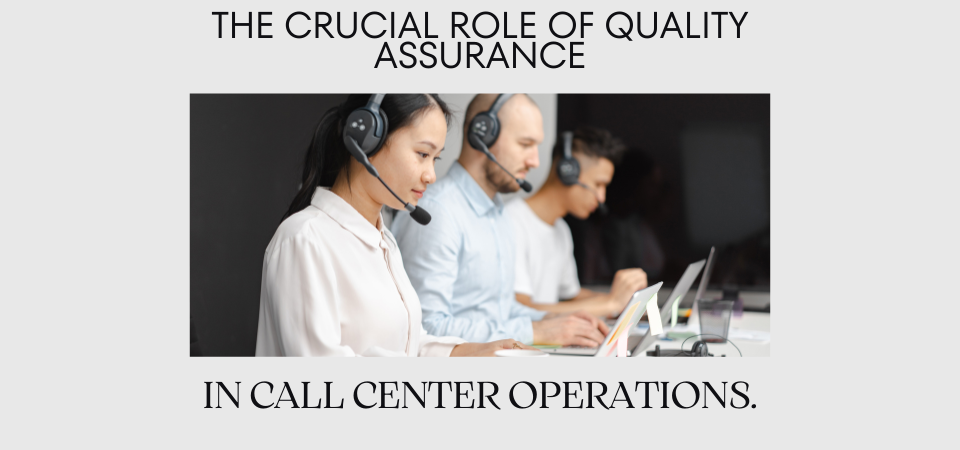Introduction:
Ensuring Excellence: The Crucial Role of Quality Assurance in Call Center Operations :
In the dynamic and fast-paced realm of call center operations, where customer interactions are at the forefront, maintaining high-quality services is paramount. Quality Assurance (QA) emerges as a linchpin in this domain, ensuring that customer experiences not only meet but exceed expectations. In this blog(Role of Quality Assurance in Call Center Operations), we’ll delve into the significance of QA in call center operations and explore how it contributes to overall success.
1. Enhancing Customer Satisfaction:
Quality Assurance plays a pivotal role in elevating customer satisfaction levels. By meticulously monitoring and evaluating customer interactions, call centers can identify areas of improvement, address concerns promptly, and ensure that every customer is treated with the utmost professionalism and courtesy.
2. Consistency in Service Delivery:
QA processes establish standardized benchmarks for service quality. This consistency is crucial for maintaining a unified and positive brand image. Agents are guided by predefined quality metrics, ensuring that each customer receives a consistent and high-quality experience, regardless of the specific agent handling the call.
3. Identifying Training Needs:
Regular QA evaluations provide valuable insights into the strengths and weaknesses of individual agents and the overall team. By pinpointing areas that need improvement, call center managers can tailor training programs to address specific skill gaps, leading to a more competent and confident workforce.
4. Compliance and Risk Mitigation:
In heavily regulated industries, adherence to compliance standards is non-negotiable. Quality Assurance processes help call centers ensure that agents comply with industry regulations and company policies. This not only safeguards the organization from legal repercussions but also builds trust with customers who value data security and privacy.
5. Improving First-Contact Resolution Rates:
One of the key indicators of call center efficiency is the ability to resolve customer issues on the first contact. QA evaluations help identify areas for improvement in this regard, allowing call centers to implement strategies that enhance first-contact resolution rates, reducing customer frustration and increasing operational efficiency.
6. Driving Employee Engagement:
Employees thrive when they understand their performance expectations and receive constructive feedback. QA evaluations provide a framework for recognizing and rewarding outstanding performance, fostering a positive work culture and boosting employee morale.
7. Customer Insights for Continuous Improvement:
By analyzing customer interactions through QA data, call centers gain valuable insights into customer preferences, pain points, and expectations. This information serves as a foundation for continuous improvement initiatives, allowing call centers to adapt and evolve in response to changing customer needs.
Conclusion:
In the dynamic landscape of call center operations, Quality Assurance emerges as a catalyst for success. By prioritizing excellence in customer interactions, maintaining consistency, and leveraging insights for continuous improvement, call centers can not only meet but exceed customer expectations, fostering loyalty and long-term success. Embracing a robust Quality Assurance framework is not just a choice; it’s a strategic imperative in the ever-evolving world of customer service.





1 Comment
I do agree with all the ideas you have introduced on your post They are very convincing and will definitely work Still the posts are very short for newbies May just you please prolong them a little from subsequent time Thank you for the post